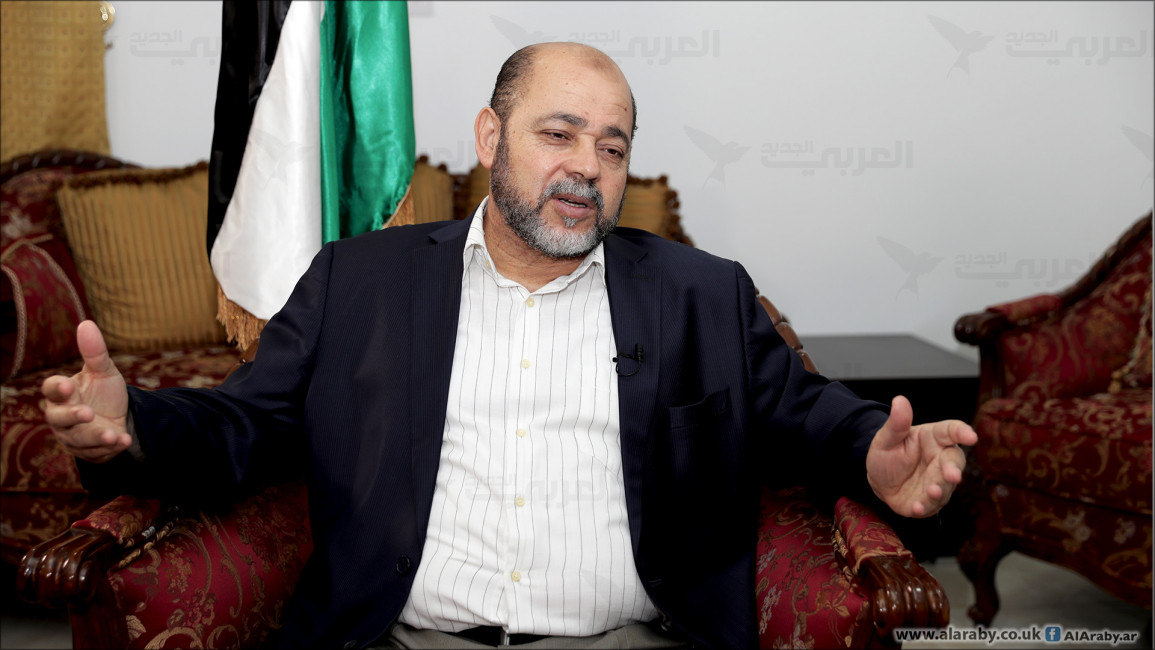We expect enemies' traps during efforts to reconcile with Fatah, says Hamas deputy leader
The deputy head of Hamas' political bureau has said that he expects to encounter "traps set by enemies" during efforts towards reaching a reconciliation deal with rival Palestinian party Fatah.
Mousa Abu Marzook made the comments in a lengthy sit-down interview with The New Arab that was published on Thursday.
Hamas and Fatah have agreed on a deal that should see the Islamists hand over control of Gaza to the internationally recognised Palestinian Authority by December 1, with talks also expected on forming a unity government.
"Hamas has put division behind its back and is advancing towards reconciliation with all of its strength and will not retreat. Even if the efforts fail, it will be one party that has failed not only Hamas," Abu Marzook said.
The senior official stressed that the future unity government would not abandon opposition to Israel, rejecting demands from the United States that the Islamist group disarm.
"Resistance against Israeli occupation is a legitimate right of Palestinians. Hamas cannot relinquish this right in any possible way," he said.
"We want a strong government that is capable of managing Palestinian issues in a proper fashion that does not abandon or isolate any component."
Abu Marzook said he expects that expects to see "traps" from opponents of the landmark deal.
"We have made this choice completely under our own accord. We have chosen this path and put ourselves in this political position. As for our enemies to set traps and conspire, that is expected," he warned.
The official said the main obstacle to previous attempts to dialogue with Fatah has been hostility from Israel and the United States.
"Israel wants to isolate the West Bank and does not want Palestinian reconciliation. The US does not want Hamas to be a part of the political process and the Palestinian political system without recognising Israel and renouncing what it calls violence," he added.
On Thursday, Washington made its first detailed response to the reconciliation deal signed last week, saying the emerging Palestinian unity government must recognise Israel and disarm Hamas.
A Hamas official immediately rejected the comments as "blatant interference" in Palestinian affairs, but did not say directly whether the Islamist group planned to comply with any of the demands.
The US' statement was similar to the Israeli government's response this week in which it vowed not to negotiate with a Palestinian unity government that includes Hamas unless the Islamist group agrees to a list of demands.
The demands included recognising Israel and renouncing violence, but also returning the remains of two Israeli soldiers killed in Gaza, among other conditions.
Hamas has run the Gaza Strip since seizing it in a near civil war in 2007 with Fatah, based in the occupied West Bank, following a dispute over elections won by the Islamist movement.
The Palestinian Authority, currently dominated by Fatah, is due to resume control of the Gaza Strip by December 1 under the deal.
Talks are also expected on forming a unity government, with another meeting between the various Palestinian political factions scheduled for November 21 in Cairo.
Previous attempts at reconciliation have repeatedly failed, and many analysts are treating the latest bid with caution, waiting to see if actual change will occur on the ground.



